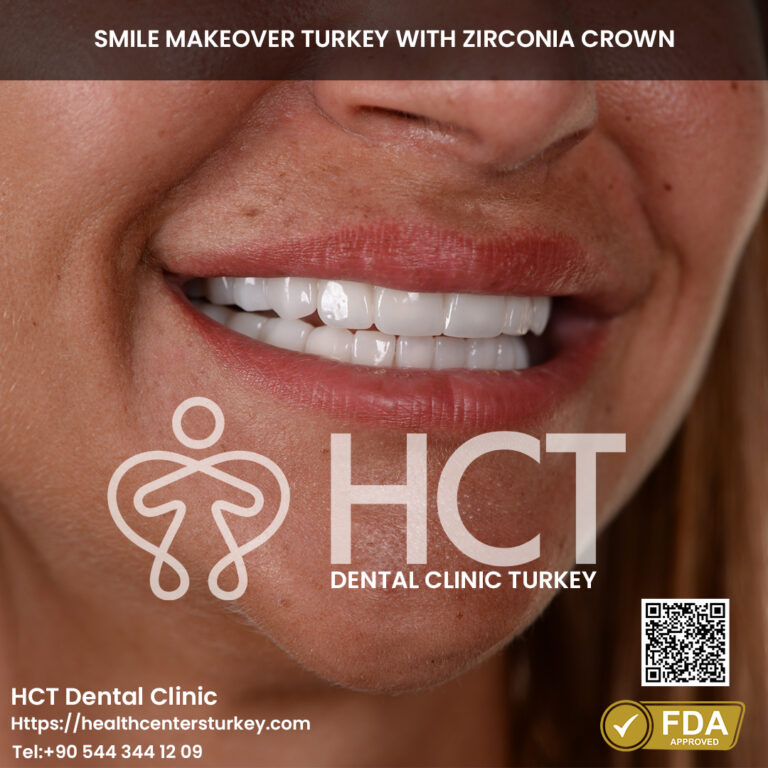Achieve Optimal Teeth Health with Affordable Treatments in Turkey
Dental implants have become a well-liked resolution for those seeking to replace missing teeth. Understanding how these implants can have an effect on adjacent teeth is crucial for anybody considering this process, as well as for dentists and specialists concerned in dental care.

One important facet is that dental implants are designed to be anchored into the jawbone, which means they're unbiased of adjacent teeth. Unlike dental bridges, which often require the alteration of neighboring teeth, implants can fill the hole without compromising the health or structure of these surrounding teeth.
This independence helps keep the integrity of adjacent teeth. When a tooth is misplaced, there can be a natural tendency for neighboring teeth to tilt or shift into the empty space. Such motion can lead to misalignment, which might have an effect on chunk and general oral health. By inserting an implant, you effectively prevent this potential shift, selling better alignment in the long run.
Discover Affordable Dental Services across Turkey
Additionally, dental implants help preserve bone density in the jaw. A natural tooth root supplies stimulation to the encompassing bone, keeping it wholesome and strong. When a tooth is missing, the bone can start to deteriorate because of lack of stimulation. With a dental implant mimicking a natural root, bone loss may be minimized, which indirectly advantages adjacent teeth by preserving the overall structure of the dental arch.
While dental implants are advantageous, improper placement can influence neighboring teeth. If an implant is positioned too shut to another tooth, it may exert undue pressure on that tooth, resulting in discomfort or potential harm. Proper planning and imaging methods are important for avoiding such issues.
Tailored Dental Plans for Your Unique Needs
Moreover, maintaining good oral hygiene is essential after receiving an implant. If not correctly cleaned, surrounding teeth could turn out to be vulnerable to dental issues corresponding to decay or gum disease. This underscores the significance of diligent oral care following the procedure to make sure each implants and adjacent teeth remain healthy.
Regular dental check-ups are additionally vital for monitoring the health of surrounding teeth. Dentists can establish any shifts or potential problems early, allowing for well timed interventions. This proactive approach ensures that both the implant and adjacent teeth can coexist with out complications.
Effective Orthodontic Treatments available in Turkey
Another consideration is the influence of implants on chunk force. When a single tooth is missing, the load of chewing might shift to adjacent teeth, doubtlessly resulting in wear or pressure. Implants restore correct bite dynamics by redistributing forces in the mouth, which may defend surrounding teeth from undue stress.
Some patients might elevate concerns about the appearance of dental implants. Well-placed implants can mix seamlessly with current teeth, improving overall aesthetics. In distinction, failing to switch a missing tooth can result in aesthetic issues, including collapsing of facial structure and modifications in smile dynamics.
It's my blog additionally worth discussing the psychological aspects of dental health. Experiencing tooth loss can adversely have an effect on one’s shallowness and willingness to have interaction socially. By restoring your smile with implants, you'll be able to positively affect not solely your oral health but additionally your emotional well-being.
Long-term success of dental implants often hinges on various elements, including the patient's health, maintenance habits, and the standard of the preliminary process. If adjacent teeth are wholesome and correctly cared for, the chances are they'll continue to thrive alongside the implants.
Improve One's Teeth Appearance with State-of-the-Art Dental Solutions
In conclusion, dental implants play a vital role in not just restoring individual smiles, but in preserving the health and structure of adjacent teeth. By preventing shifting, maintaining bone density, and redistributing chew forces, implants can make certain that surrounding teeth stay in optimum condition. Proper placement, hygiene, and common dental visits can additional improve the advantages of dental implants, resulting in a more healthy, extra confident smile for years to come.
- Dental implants can help maintain the alignment of adjacent teeth by providing a stable anchor, stopping adjacent teeth from shifting into the hole left by a missing tooth.
- The presence of an implant could stimulate bone development within the jaw, serving to to protect the general structure and integrity of the adjacent teeth.
- Unlike traditional bridges, implants do not require alteration of surrounding teeth, thus preserving their strength and anatomy.
- Implants can enhance the distribution of bite forces evenly throughout the dental arch, lowering the stress on neighboring teeth throughout chewing.
- A well-integrated dental implant can decrease the danger of bone loss in the area surrounding adjacent teeth, contributing to their long-term health and stability.
- The aesthetics of adjacent teeth can be improved as a result of support supplied by implants, which may lead to better total beauty outcomes.
- With proper placement, dental implants can prevent gum recession around adjacent teeth by sustaining sufficient dental structure.
- Implants might help mitigate the risks of periodontal disease in nearby teeth by promoting wholesome gum tissue and offering a washer-friendly surface.
- Long-term success of dental implants can lead to improved oral hygiene routines, which in turn advantages the health of surrounding teeth.
- The improved useful ability of an implant can encourage patients to chew more successfully, thus growing saliva production and aiding within the safety of adjacent dental tissues.undefinedHow do dental implants have an effect on adjacent teeth?
What are dental implants and how do they work together with adjacent teeth?undefinedDental implants are synthetic tooth roots which are surgically placed into the jawbone. They present a secure foundation for replacement teeth whereas making certain minimal disruption to adjacent teeth, preserving their integrity and alignment. Tips for Dental Procedures in Turkey.
Discover Budget-Friendly Dental Care in Turkey
Can dental implants cause problems for close by natural teeth?undefinedGenerally, dental implants do not hurt adjacent natural teeth. However, if the implant is not positioned accurately or if there’s insufficient oral hygiene, it might result in issues corresponding to adjacent tooth decay or gum disease.

Will more tips here getting a dental implant change the way my adjacent teeth feel?undefinedMost patients report no change in the sensation of adjacent teeth after implant placement. However, it may take some time to adjust to the presence of the implant, similar to how one may adapt to different dental restorations.
Can dental implants assist protect the health of adjacent teeth?undefinedYes, dental implants may help keep the health of adjacent teeth by stopping bone loss that may happen after tooth loss. This preservation supports the alignment of nearby teeth, reducing the risk of shifting or misalignment.
Remarkable Dental Care Experiences for Tourists
Do I need to modify adjacent teeth when getting an implant?undefinedTypically, adjacent teeth do not need alteration when inserting an implant. This is probably considered one of the benefits of dental implants over traditional bridges, which often require reshaping adjacent teeth for support.
How does the therapeutic strategy of an implant have an result on nearby teeth?undefinedThe healing process entails osseointegration, the place the implant fuses with the jawbone. During this time, adjacent teeth remain unaffected and retain their function, although it’s important to comply with post-operative care recommendations. Your Path to a Perfect Smile with Implants and Veneers.
Ensure Optimal Teeth Health by means of Affordable Treatments in Turkey
Can dental implants lead to bone loss round adjacent teeth?undefinedIf dental implants are placed properly and cared for adequately, they should not result in bone loss around adjacent teeth. In truth, they might help stimulate bone growth, combating the natural bone loss that often follows tooth extraction.
What precautions ought to I take to protect adjacent teeth after getting an implant?undefinedRoutine dental hygiene, together with brushing and flossing, together with regular dental check-ups, is essential. Avoiding exhausting meals and following your dentist’s aftercare directions will also defend both the implant and adjacent teeth.
Is it frequent for adjacent teeth to shift after an implant is placed?undefinedIt's not typical for adjacent teeth to shift after an implant placement, especially when the implant is positioned appropriately and maintained correctly. If there’s any movement, it may be due to other underlying points that ought to be evaluated by a dental professional.